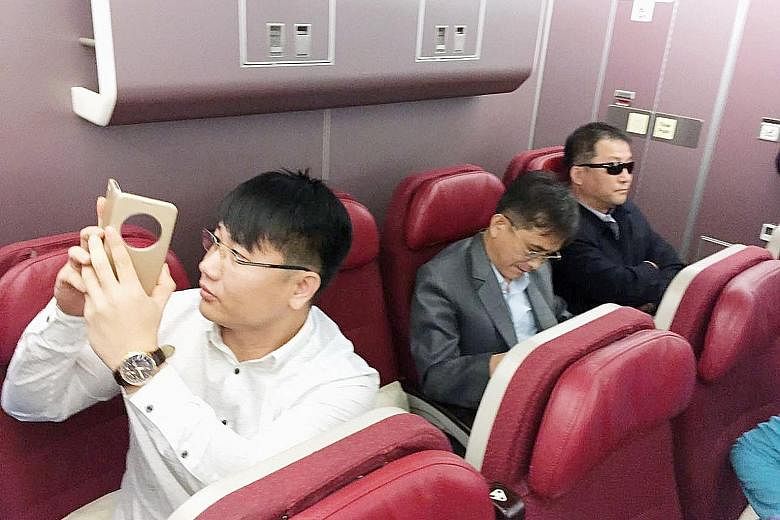Malaysia may have acted out of necessity in avoiding a hostage situation in North Korea but exchanging nine Malaysians for three North Koreans and the body of the murdered Mr Kim Jong Nam could weaken its hand in future international crises.
The shocking killing of the estranged half-brother of North Korean leader Kim Jong Un in Kuala Lumpur is widely believed to have been ordered by Pyongyang. But the deal eliminates evidence and three men - including a senior diplomat - from ongoing criminal investigations in Malaysia, allowing North Korea to insist that the deceased is not related to its leader, and that he died of natural causes.
Pyongyang's move to prevent Malaysians from leaving North Korea left Prime Minister Najib Razak "between a rock and a hard place", said Dr Johan Saravanamuttu, a Malaysian expert on domestic and international politics at the S. Rajaratnam School of International Studies (RSIS).
"It's a rather weak and meek capitulation to a rogue regime, especially given the nature of the crime. It seemed to be done with such impunity," he added.
An autopsy revealed that Mr Kim was poisoned with the lethal VX nerve agent - a chemical deemed a weapon of mass destruction by the United Nations - in the busy Kuala Lumpur International Airport just before boarding a plane to Macau.

Mr Saravanamuttu also pointed out that Malaysia is developing a dubious reputation for making concessions, as it did with kidnappers on the eastern coast of Sabah, and a separatist group that allegedly shot down a Malaysia Airlines plane over Ukraine in 2014.
Malaysia's Institute of Strategic and International Studies foreign policy and security studies head Elina Noor said that while "it may seem that North Korea won, there was no way Malaysia was going to play a high stakes game with the lives of the nine there".
"Probably not a strategically ideal outcome for some on the outside but... the other alternatives were not really viable for Malaysia's appetite," she told The Straits Times. "The situation was unprecedented for us. We have a steep learning curve ahead."
Datuk Seri Najib said yesterday Malaysia would not sever ties with North Korea. RSIS research analyst David Han said both countries showed their "desire to maintain their bilateral relations" with the deal, despite there being "no doubt that this episode would only worsen North Korea's pariah and rogue state image in the world".

